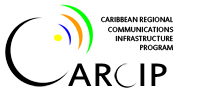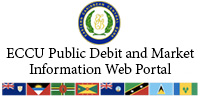1. What is FATCA?
FATCA stands for the Foreign Account Tax Compliance Act. FATCA was enacted by the United States of America in 2010, as part of the Hiring Incentives to Restore Employment Act, to combat tax evasion by U.S. taxpayers holding accounts or other assets in non-U.S. Financial Institutions. It requires Foreign Financial Institutions (FFIs) to report to the U.S. Internal Revenue Service (IRS) information on assets held by U.S. taxpayers, or by foreign entities in which U.S. taxpayers hold substantial ownership interest.
FATCA’s main objective is to allow the IRS to gain information on assets of US$50,000 or more held by US taxpayers, or by foreign entities in which US taxpayers hold substantial ownership interest.
2. Why should we be concerned about FATCA?
FATCA is far reaching and can impact any person, U.S. or non-U.S., to the extent that such persons is involved in making or receiving payments that fall within the scope of FATCA.
3. What are Foreign Financial Institutions?
A Foreign Financial Institution includes non-U.S. Financial Institutions that accept deposits, hold financial assets for others, is engaged in investing and reinvesting or trading in securities for others, as well as insurance companies that issue contracts with an investment component. This includes entities such as Banks, Funds, Insurance Companies, Trusts, Private Equity Companies, and Special Purpose Entities.
4. What are the consequences of not registering and entering into the FFI Agreement (non-compliance)?
A 30% withholding tax on certain U.S. source payments made to them (withholdable payments).
Potential loss of corresponding banking relationships which will have implications for our financial system, and more specifically tax liability owed by these FIs to the Inland Revenue Department.
St. Vincent and the Grenadines can be blacklisted.
5. Who is a U.S. Person under FATCA?
Attributes that generally result in an individual or business being classified as a US person under FATCA include:
- US Citizenship
- US Residency (e.g. green cardholders)
- Non-resident aliens who meet the substantial presence test (physically present in the US for at least 31 days in the current year and 183 days during the last 3 years including the current year)
- A partnership or corporation organized in the US.
6. Who is the FATCA Competent Authority for St. Vincent and the Grenadines?
The Competent Authority for St. Vincent and the Grenadines is the Inland Revenue Department. The Competent Authority designate is the Comptroller of Inland Revenue.
7. What Model Intergovernmental Agreement was sign by St. St. Vincent and the Grenadines?
The Government of St. Vincent and the Grenadines signed a Model 1B Intergovernmental Agreement (IGA) with the United States Government on August 18, 2015. The Agreement requires the Financial Institutions, registered with the US IRS for FATCA purposes, to submit FATCA data to a Competent Authority. The Competent Authority would therefore be responsible for submitting FATCA data to the US IRS.
8. What is a Financial Institution (FI)?
Financial Institution means a reporting financial institution or a person who carries on business in St. Vincent and the Grenadines as:
- a custodial institution - a depositary institution
- an investment entity - or a specified insurance company
9. What is required by the Financial Institutions (FIs)?
All registered FIs and the like, must report on US accounts valued over US$50,000, or on foreign entities in which US persons hold substantial (at least 10%) share ownership interest in foreign assets abroad and Annuity Cash Value of ($250,000 or more).
10. Do Financial Institutions have to enroll with the ST. VINCENT AND THE GRENADINES FATCA Competent Authority every year?
No. A Financial Institution is only required to enroll with the ST. VINCENT AND THE GRENADINES FATCA Competent Authority once and their account details will remain valid until revoked.
11. How would the Financial Institutions be able to determine a US Person?
The IRS has set out the following indicia or indicators of possible US status:
- identification of any account holder as a US resident or US Citizen;
- a US address associated with an account holder of the account (whether a residence address or correspondence address);
- a US place of birth for an account holder of the account;
- an “in care of” address, a “hold mail” address, or a U.S. P.O. address that is the sole address on file with respect to the account holder;
- a power of attorney or signatory authority granted to a person with a US address; or
- outstanding instructions to transfer funds to an account maintained in the U.S., or directions received from a U.S. address.
12. What format must the Financial Institutions use to submit their filings?
The ST. VINCENT AND THE GRENADINES FATCA Portal will only accept filings in the most recent XML format stipulated by the US XML FATCA Schema. At present, the version that is in effect is version 2.0. Alternatively, Financial Institutions can use the manual entry form to enter their data into the system.
13. Can a Financial Institution submit its filings under the US FATCA Agreement to the ST. VINCENT AND THE GRENADINES Competent Authority by any other means?
No. Financial Institutions will only be able to submit information electronically, via the ST. VINCENT AND THE GRENADINES FATCA Portal to satisfy their obligations under the US FATCA Agreement.
14. What data is required from the Financial Institutions to the Competent Authority?
Information that must be collected and exchanged includes:
- Identification of the individual or entity account holder (name, address, and an available TIN and date of birth);
- Identification of the account (account number and Financial Institutions name and identification number); and
- The account holder’s financial account information (the account balance or value as well as the gross amount of income from dividends, interests, sale and redemption of financial assets).
15. What are the due diligence procedures required by the Financial Institutions?
Reporting Financial Institutions will have to collect and report information only on account holders (individuals or entities) who are resident in a participating jurisdiction and are thus considered a “reportable person”. Therefore, reporting Financial Institutions will first need to determine their account holders’ residence by performing the following due diligence procedures.
These procedures will depend on the time the account was opened (to differentiate between pre-existing and new accounts since it should be easier for Financial Institutions to obtain information on new accounts) and whether the account holder is an individual or an entity. Additionally, if an entity account holder is considered a “Passive Non-Financial Entity, then the Financial Institutions will need to look beyond the entity, in order to identify its “controlling person” and their residence.
16. How do we deal with customers who withhold information and what is the liability of the Financial Institutions?
Customers who do not disclose the requisite information to a Financial Institution will have their accounts flagged as non-compliant. The FI will be required to eventually close the account if the information is not received within a specified period of time. Until the closure of the account, a 30% levy will be applied to any payment of interest, rents, royalties, salaries, wages, annuities, licensing fees, income and profits derived from sources within the U.S.
17. How do we deal with customers’ confidentiality?
The Competent Authority and all Financial Institutions are committed to upholding customer confidence and to keep customer and client information confidential and secure. Our actions as they relate to FATCA will be in strict compliance with the local regulations and legal framework of the St. Vincent and the Grenadines Banking Act.
18. Are Financial Institutions required to obtain a Global Intermediary Identification Number (GIIN) before they can enroll with the ST. VINCENT AND THE GRENADINES FATCA Competent Authority?
Yes. Financial Institutions must register with the IRS and obtain a GIIN before their enrolment is approved by the ST. VINCENT AND THE GRENADINES FATCA Competent Authority. The GIIN is a mandatory field on the Enrolment Form.
Further information on applying for and obtaining a GIIN can be found on IRS website:
https://www.irs.gov/businesses/corporations/fatca-foreign-financial-institution-registration-tool
19. Are Sponsoring Entities required to obtain a GIIN before they can enroll with the ST. VINCENT AND THE GRENADINES FATCA Competent Authority?
Yes. Sponsoring Entities must register with the IRS and obtain a GIIN before they can enroll with the ST. VINCENT AND THE GRENADINES FATCA Competent Authority.
20. What if a customer does not want his/her information shared with the U.S. Authorities?
All financial institutions and governments around the world are making arrangements to become FATCA compliant, therefore persons with U.S. status and holding investments or policies in excess of US$50,000 or US$250,000 respectively, will be required to submit information about their income and accounts at any financial institution.
Foreign (non US financial) institutions are required to report to the IRS any customers who decline to provide requested information. Non-compliant customers may be subject to 30% withholding tax on income from US sources.
21. Who may be exempt from FATCA Reporting?
Some entities may be exempt from the reporting requirements of FATCA. These include:
- Foreign Governments;
- International Organizations;
- Centrals Banks;
- Certain Retirement or Pension funds;
- Small local banks or credit unions with a local client base and with low value accounts not exceeding US$50,000;
- Entities that qualify as Deemed-Compliant FFI See Annex II included on this website for more information.
22. What is the Reporting Threshold under FATCA?
FATCA requires reporting by an FFI to the IRS, any off-shore asset or account held by a U.S. person with a value or balance exceeding US$50,000.00. FATCA also requires the reporting of accounts held by foreign entities with a value or balance exceeding US$250,000, where a U.S. taxpayer holds substantial ownership interest that is greater than 10% in such entity.
23. What is a Withholdable payment?
Payments of either U.S. source income that is fixed or determinable annual or periodical income or gross proceeds from the sale or other disposition of property that can produce US source interest or dividend income.
24. How can I contact the FATCA Competent Authority for St. Vincent and the Grenadines?
All FATCA related inquiries should be submitted to the Competent Authority Designate at (784) 457-1493 or via email at This email address is being protected from spambots. You need JavaScript enabled to view it..
25. Where can I go for more information?
For further information please log on to:




